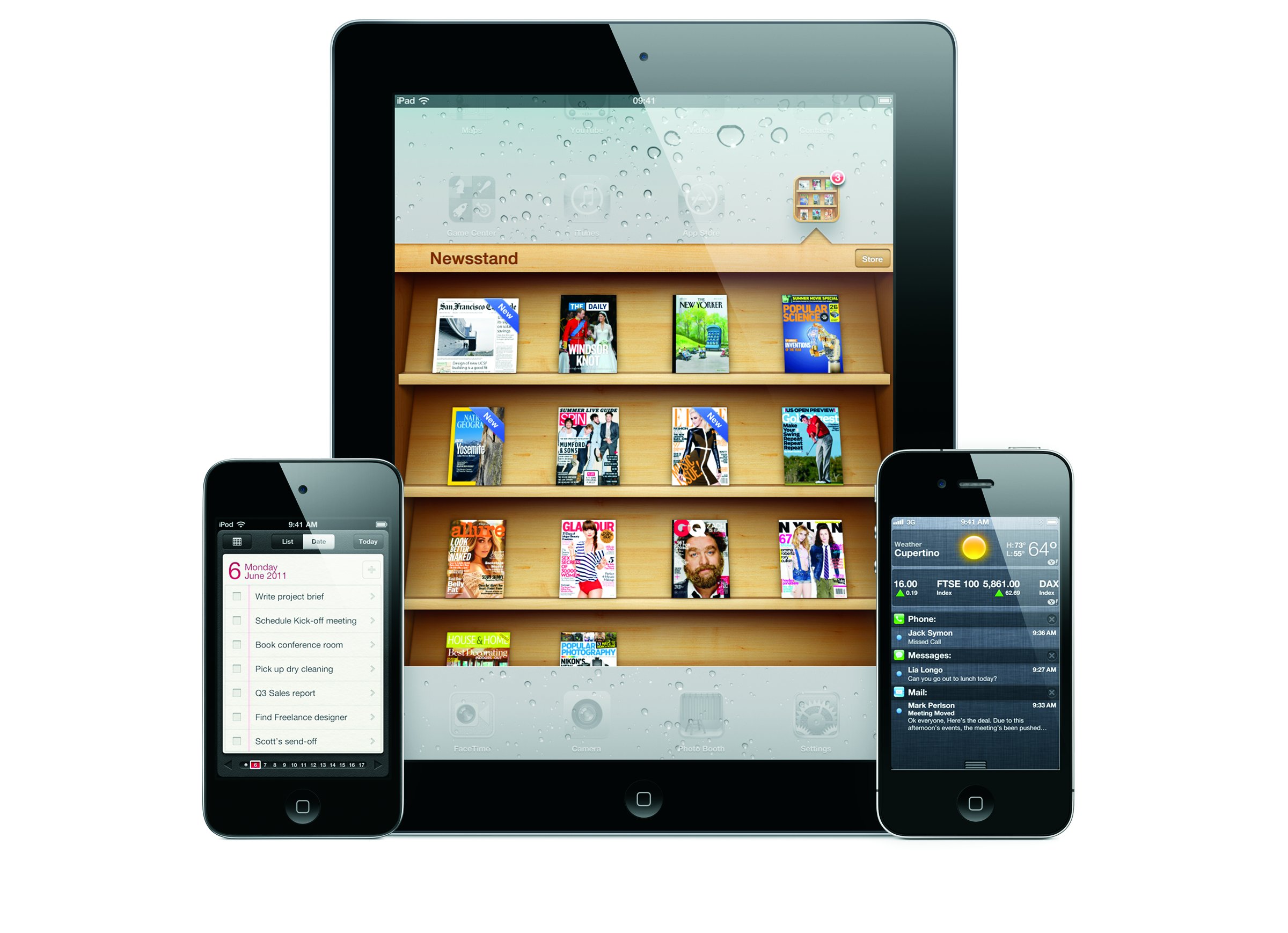Apple blurs the lines between iOS and OS X
Why Apple's annual extravaganza didn't disappoint

Sign up for breaking news, reviews, opinion, top tech deals, and more.
You are now subscribed
Your newsletter sign-up was successful
Apple's World Wide Developers' Conference (WWDC) is easy to parody: Steve Jobs says "boom", the assembled hordes shout "woo!" and a million hands reach for their credit cards to buy whatever shiny new thing Steve has just showed off.
This year, though, things were a little different. Apple may not have shown off shiny new hardware, but it did demonstrate some very big ideas.
First up was OS X Lion, the latest and greatest version of Apple's desktop operating system. As we predicted last year, the lines between OS X and iOS - which runs on Apple's iPhones, iPads and iPod Touches - are blurring.
Lion has lots of iOS-inspired features including multi-touch gestures, full-screen apps and autosaving among the 250 enhancements making their way into Apple's OS.
One thing we didn't predict was OS X Lion's price: at $29.99 - around £21 plus VAT over here - it's "stupidly affordable", especially when your licence covers you for five devices. One reason it's so cheap is that there's no DVD this time: OS X Lion will only be available as an App Store download.
OS X isn't the only Apple OS heading for a major update. iOS 5 cuts the cable between iDevices and computers - you'll be able to sync libraries, apps and even operating system updates wirelessly - and the rather hopeless notifications system has been given an Android-style makeover. Interestingly, iOS 5 won't shut out iPhone 3GS owners - although if it runs like lightning on a 3GS, we'll eat an iMac.
Messaging and the cloud
Sign up for breaking news, reviews, opinion, top tech deals, and more.
So what else does iOS 5 have to offer? There's a new BlackBerry BBM-style messaging system called iMessage for free texts between Apple devices; Newsstand, which is essentially iBooks for magazines; Twitter integration, which is cooler but probably less useful than Windows Phone's Facebook integration; a new version of Safari with tabbed browsing; location-aware reminders; improved Mail and the ability to take photos from the lock screen and to trigger the camera shutter with the volume-up button.
Want to know more? Check out our in-depth guide to iOS's new features.
Brand new versions of desktop and mobile operating systems would be enough for most firms, but Steve Jobs had one more thing: iCloud. The service replaces the ageing MobileMe, and unlike MobileMe it won't cost you a penny.
There's more to iCloud than email and calendars, although it does that too. Its 5GB of free storage enables you to share documents between your various devices, so for example you might write something in Pages on the iPad and then grab it from iCloud when you're at your desktop Mac.
iCloud provides effortless photo syncing between devices - Apple calls this feature Photostream - and it will also enable you to share your purchased music between devices.
Music match
Music sharing is for iTunes purchases only: if you want to share stuff you didn't buy from iTunes you'll need the $24.99 per year iTunes Match, assuming that service makes it across to the UK. There's no word of a similar service for purchased movies or TV shows.
iCloud also keeps with the cutting-the-cables theme: it'll automatically backup your iPhone, iPad or iPod touch when you charge it, although once again non-iTunes music isn't covered. iTunes purchases won't count towards your 5GB of storage space, which is a nice touch.
Ten years ago, Steve Jobs announced Apple's "digital hub" strategy, with the iMac at the centre of your digital life. Now, Jobs says, "we're going to demote the PC and the Mac to be just a device." The digital hub still exists, but Apple clearly thinks it should move from the iMac to iCloud.
---------------------------------------------------------------------------------------------------
Liked this? Then check out iPhone 5 rumours: what you need to know
Sign up for TechRadar's free Week in Tech newsletter
Get the hottest tech stories of the week, plus the most popular reviews delivered straight to your inbox. Sign up at http://www.techradar.com/register

Contributor
Writer, broadcaster, musician and kitchen gadget obsessive Carrie Marshall has been writing about tech since 1998, contributing sage advice and odd opinions to all kinds of magazines and websites as well as writing more than twenty books. Her latest, a love letter to music titled Small Town Joy, is on sale now. She is the singer in spectacularly obscure Glaswegian rock band Unquiet Mind.